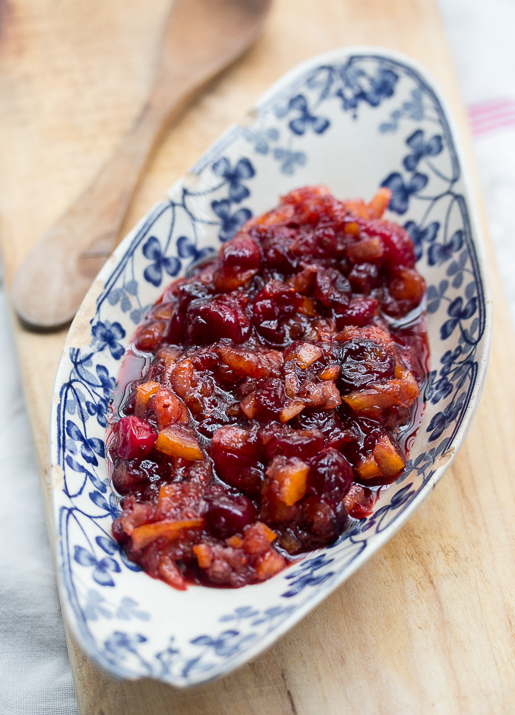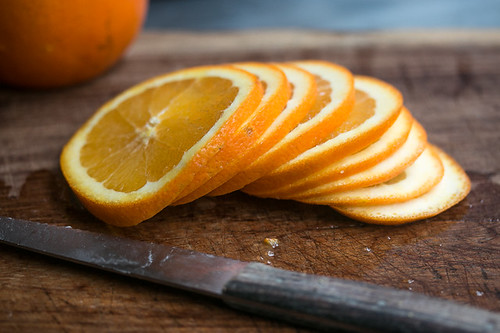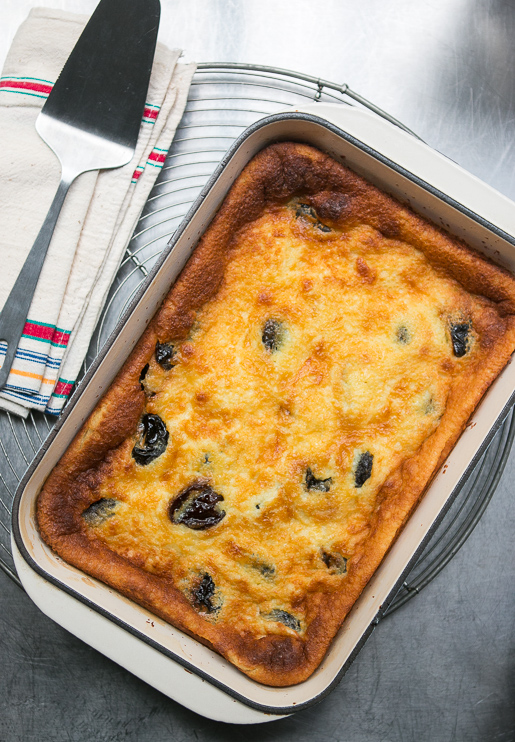| ||
|
Saturday, November 29, 2014
EAT YOUR BOOKS
Thursday, November 27, 2014
Raspberry and Blueberry Madeleines
| |||||||||||||||||||||||||||||||||||||
| |||||||||||||||||||||||||||||||||||||
| |||||||||||||||||||||||||||||||||||||
| |||||||||||||||||||||||||||||||||||||
Cranberry Sauce with Candied Oranges
It’s easy to forget about
Thanksgiving in Paris. There are no bags of stuffing mix clogging the aisles in
the supermarkets. If you asked a clerk where is the canned pumpkin, they would
look at you like you were fou
(crazy). And if you open the newspaper, you won’t come across any sales on
whole turkeys. In fact, it’s quite the opposite; a friend saw a 5 kilo turkey,
an 11 pound bird, at the market the other day for €68kg, or €340 ($424).
(Although I think if you spent over
four hundred dollars on a turkey, you wouldn’t forget it for a long, long
time.)
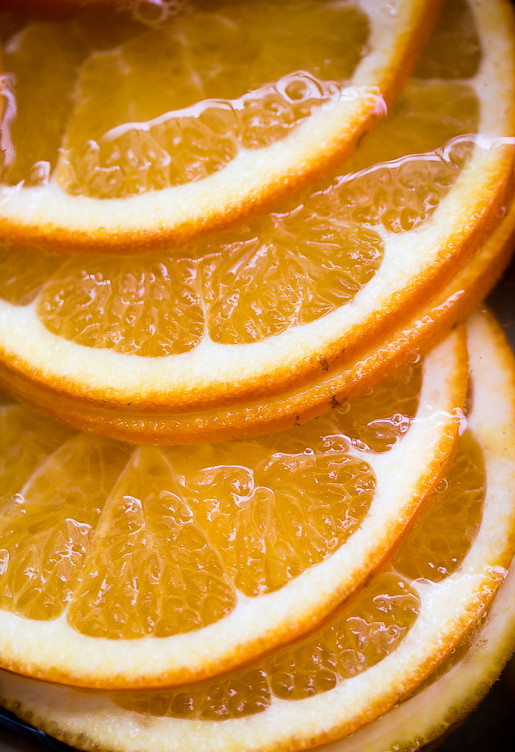 I suggested that the turkey vendor
perhaps forgot a comma because whole turkeys are, indeed, available in Paris,
and they actually excellent since most are fermier,
not the plump whoppers you see in the states. The only thing you have to be
careful about is that one turkey might not be enough if you’re feeding a large
crowd, say, a group of over six people. Savvy Americans know to order a whole
turkey in advance from their butcher and – get this: You can ask them to cook
it for you. Yes, since the butchers usually have spits with roasting chickens
on them, it’s usually not a problem for them to slide a turkey on there. That’s
especially nice because most people in Paris just have one oven and it’s hard
to tie it up for the entire day with just a bird roasting in it when you’ve got
so many other things to bake and cook off.
I suggested that the turkey vendor
perhaps forgot a comma because whole turkeys are, indeed, available in Paris,
and they actually excellent since most are fermier,
not the plump whoppers you see in the states. The only thing you have to be
careful about is that one turkey might not be enough if you’re feeding a large
crowd, say, a group of over six people. Savvy Americans know to order a whole
turkey in advance from their butcher and – get this: You can ask them to cook
it for you. Yes, since the butchers usually have spits with roasting chickens
on them, it’s usually not a problem for them to slide a turkey on there. That’s
especially nice because most people in Paris just have one oven and it’s hard
to tie it up for the entire day with just a bird roasting in it when you’ve got
so many other things to bake and cook off.Wednesday, November 26, 2014
Michael Cooper’s Buyer’s Guide - never leave home without it.
 One of the credit card companies, Amex I think, used to have an advertising slogan, "never leave home without it".
One of the credit card companies, Amex I think, used to have an advertising slogan, "never leave home without it".I apply this rule to Michael Cooper's annual guide to NZ wines.
New Zealand Wines 2015: Michael Cooper’s Buyer’s Guide (which went on sale earlier this week, RRP $39.99- Upstart Press), is essential reading for those of us who want objective information on the huge 2014 vintage. With totally independent, unbiased ratings and tasting notes on over 3000 New Zealand wines, the book is my "bible" and is used by thousands of wine consumers and wine professionals around the world.
My copy is already in the glove box of my car so whenever I call at Glengarry's or New World Victoria Park to buy wine I have it with me for seeing what Michael Cooper has to say about the wine before I buy.
Far Breton
Posted: 26 Nov 2014- David Lebovitz
The other day, while minding my
business, taking a casual stroll about town, I suddenly realized that I’d
written “Bonne anniversaire,” or “Happy Birthday,” in French, here on the site.
It’s an honest mistake because the happy (or bon,
er, I mean, bonne)
expression is pronounced bonneanniversaire,
rather than bon
(with a hard “n”) anniversaire, because, as the
French would say, it’s “plus
jolie,” or simply, “more beautiful.”
(And I’m pretty sure I got that jolie right. Since it refers
to l’expression,
which is feminine, it’s jolie,
rather than, joli.
Although both are pronounced exactly the same. And people think I spend all day
making up recipes…)
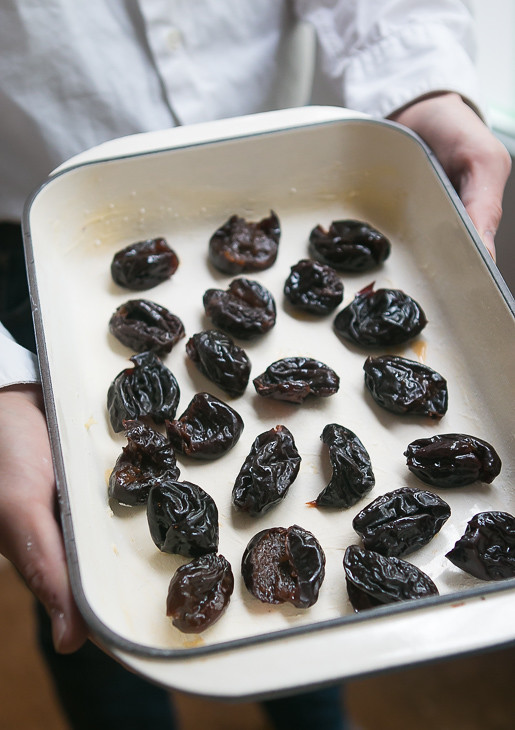 I raced back home as fast as my feet
could take me, shoving pedestrians aside and knocking over a few old ladies in
my path, to correct it to “Bon
anniversaire.” Then afterward, after I caught my breath, I did a
search on some French grammar sites on the Internet and landed on one forum
with four intricate pages of heated discussions on whether it was actually
masculine (bon) or
feminine (bonne).
Everyone (well, being France, most people…) agreed that it was masculine –
although curiously, it’s pronounced as bonne,
the feminine, when wishing someone, or anyone, a “Happy Birthday.”
I raced back home as fast as my feet
could take me, shoving pedestrians aside and knocking over a few old ladies in
my path, to correct it to “Bon
anniversaire.” Then afterward, after I caught my breath, I did a
search on some French grammar sites on the Internet and landed on one forum
with four intricate pages of heated discussions on whether it was actually
masculine (bon) or
feminine (bonne).
Everyone (well, being France, most people…) agreed that it was masculine –
although curiously, it’s pronounced as bonne,
the feminine, when wishing someone, or anyone, a “Happy Birthday.”
Just like you would never write, or
say, ma amie
(feminine) – even if “my” friend was a girl or woman, because it would sound
like ma’amie, which
reads like Finnish, and if spoken (go ahead, try it) sounds like bleating
sheep. So it’s always mon ami,
and mon amie, a
gender-bending (and for us learning the language, a mind-boggling) minefield of
a mix of masculine and feminine pronouns.
Another thing that confuses people
is salade, which is
what lettuce is generally referred to in French, when talking about the genre
of lettuces. If it is a specific kind of lettuce – batavia, rougette, romaine, l’iceberg, etc, it’s often
referred to by type. Yet the word salade
is also used to refer to composed salads, like salade niçoise, salade de chèvre chaud, and salade parisienne. Hence
non-French speakers are often confused when they order a sandwich with salade and find a few dinky
leaves of lettuce on their plate, not the big mound of nicely dressed greens
that they were hoping for.
Whew! After those first three
paragraphs, I think you’ll understand why French is a tricky language to
master, and even the French are at odds with how to say and write what. No
wonder everybody smokes. #stress
In fact, I think I also need to step outside myself after writing all of that.
Tuesday, November 25, 2014
Subscribe to:
Posts (Atom)










_small.jpg)


